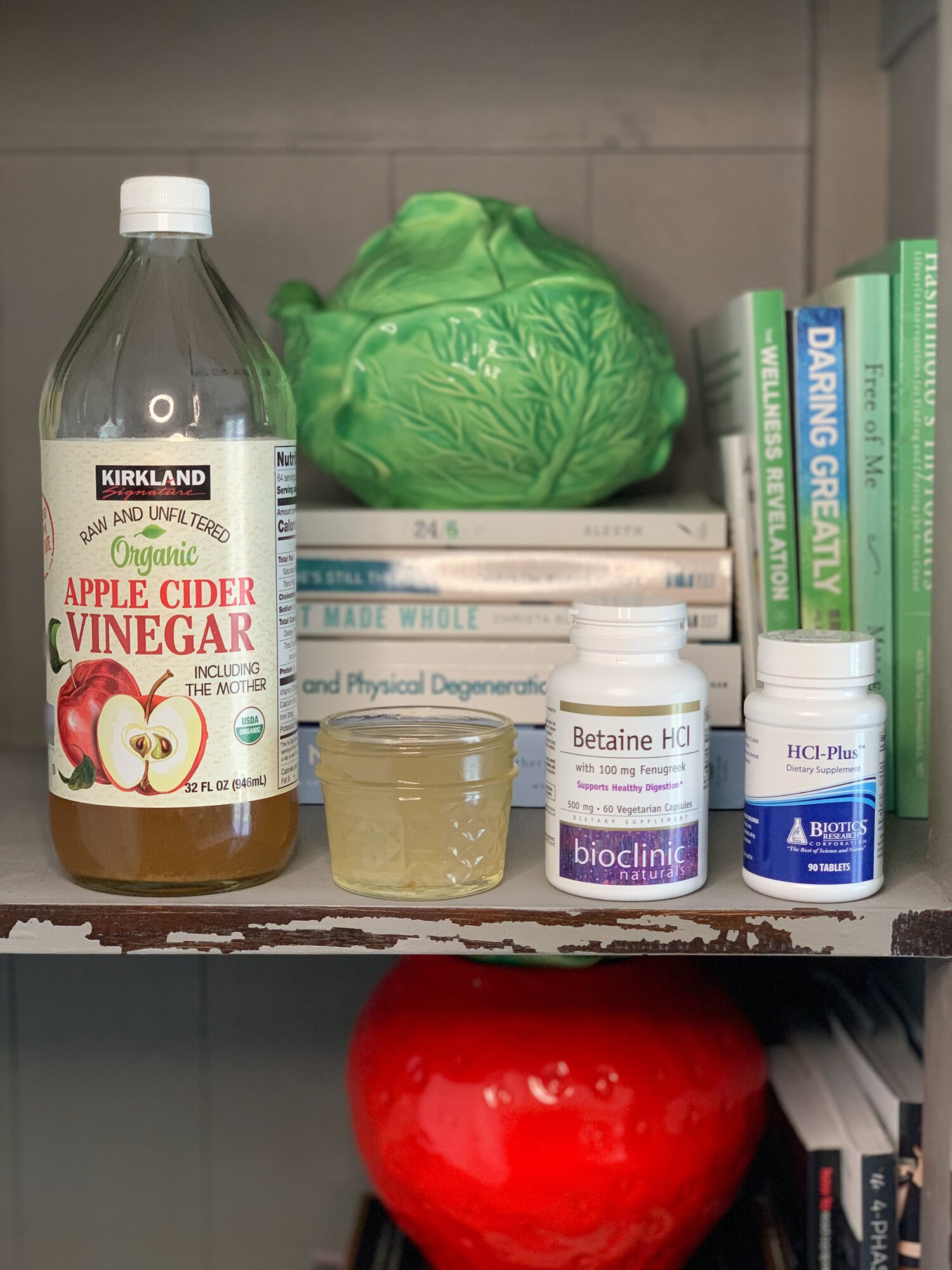10 Signs You May Have Hypochlorhydria
Hoping your heartburn away? Wishing you could control your heartburn pain, gas and bloat with a more natural solution than a sleeve of Tums? Wondering how to get rid of stomach gas? Looking for a natural way to stop heartburn in its tracks? Here’s what happens when your digestion is dysfunctional from the very start.
You eat dinner...or breakfast, or lunch (any meal really) and within 1-2 hours (even less!) you start to feel bloated, gassy, and likely experience heartburn or acid reflux.
While uncomfortable, you anticipate these post-meals feels because it happens after almost every meal and seems “normal” to you. It’s too easy to take a few Tums until those symptoms settle down and you can continue on with your day or evening.
But why is this happening?
The stomach needs to be very acidic, ideally 1.5-3 on a pH scale, in order to properly break down food to be digested and absorbed by the body. Proper acid levels in the stomach are needed to activate enzymes, namely the enzyme pepsin that breaks down protein. Without sufficient acid levels the body is unable to properly break down the food we eat to absorb and assimilate the nutrients it provides. Digestion is a north to south process, so when there is dysfunction in the stomach, it typically trickles down into other digestive organs.
Inadequate levels of stomach acid is referred to as a condition called hypochlorhydria.
This means your body is not producing enough stomach acid to trigger digestive enzymes and assist is properly breaking down the food you eat. When the food is left undigested or partially digested it begins to ferment and putrefy in the stomach creating the gas and bloating you have become accustomed to.
But my doctor told me I have TOO MUCH stomach acid and that is why I get heartburn.
I hear this question a lot. It’s easy to assume, too, because with HeartBURN and ACID reflux you would think the problem is too much acid. It’s the complete opposite! That undigested food sitting in your stomach that I talked about? It gives off gases and when the stomach churns and tries to move it through the stomach, it can press back up into the esophagus. The esophagus is meant to handle very neutral food that has just been swallowed, so when food that has been in the very acidic environment that is the stomach reenters the esophagus, it BURNS. The problem isn’t too much acid, but rather a lack of enough stomach acid. Antacids and PPIs that inhibit acid production are simply further contributing to the problem.
Here are 10 signs that you may have hypochlorhydria or low stomach acid:
Loss of taste for meat.
You experience belching or gas within 1-2 hours of eating.
You experience bloating within 1-2 hours of eating.
You experience heartburn or acid reflux.
You tend to feel like skipping breakfast.
You are sleepy after meals.
You notice undigested food in your stools.
Your fingernails chip, peel, or break easily.
You can’t get rid of your bad breath even though you brush your teeth.
You still feel hungry even though you are full.
Were you able to check off some of these boxes? Here is what you can do next:
Take 1-2 tablespoons apple cider vinegar (raw, please!) in 4 oz of water, taken at the start of each meal. Supplement options are there for those of us who can't stomach the ACV yet. Work with a practitioner to specifically support your digestive tract!
Optimal stomach acid levels are our first line of defense against virus', pathogens, parasites...etc. If the microorganism that enters the body isn't allowed to live, we don't get sick. When our digestive environment is optimal, virus' can't live there...they become food!
Stomach acid production slows when we're in stressful seasons, eat too many carbs, have nutrient deficiencies, allergies or drink too much alcohol. Low stomach acid causes nutrient deficiencies: B12, iron, zinc, folic acid and calcium.
Symptoms can show up as bloated bellies, heartburn, depression, anemia, peeling and chipping nails, hair loss. Over time, low stomach acid can move us to a disease state by allowing bacterial or pathogen overgrowth inside our GI-tract. Get this: these pathogens steal our nutrients from that expensive, whole-food we just carted out of the Whole Foods. That’s right: bacteria, pathogens and virus’ that are allowed to live in the digestive tract because of low stomach acid levels need to eat, too!
Research links low stomach acid to stomach ulcers, gastric cancer, acne, rosacea, gallbladder disease, celiac, allergies, eczema, graves' disease, rheumatoid arthritis, asthma, diabetes, MS, reynaud's, ulcerative colitis and more...wild, right? Getting my stomach acid right kicked 4 of my 5 autoimmune diseases that showed up in a cascade, after a very traumatic period in my life. So let's make an ACV vinegar mocktail and toast to good health!
***As always, this isn't intended to be medical advice and you would be wise to consult your medical care folks as you make changes for your health!


